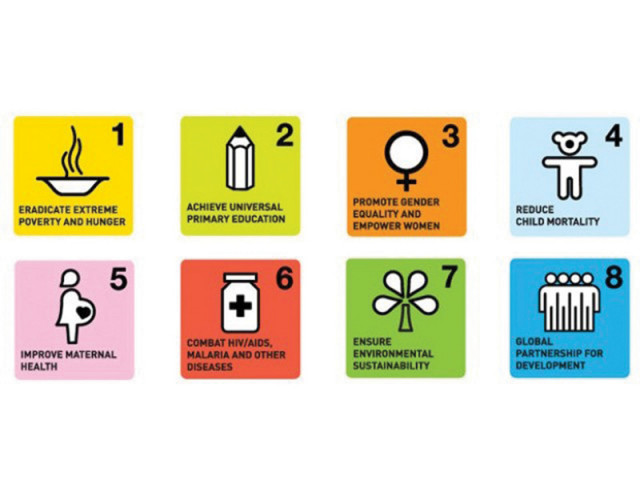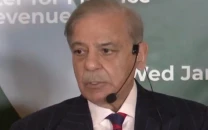MDGs: Climate change hampering Pakistan from achieving targets
Floods, droughts and storms lead to crop failure, food insecurity and diminishing opportunities

MDGs are a set of goals adopted by the UN in 2000 which aim to focus on improving lives of the poorest people in the world as well as raising awareness about the eight focal areas. The goals, to be achieved by 2015, range from eliminating extreme poverty to ensuring environmental stability.

Owing to various socio-political changes, economic challenges, natural disasters and internal and external security issues coupled with lack of interest by policymakers and failure in implementing policies effectively, achieving the MDGs is now seen as a pipe dream for Pakistan.
“Many of the main drivers of poverty in Pakistan are intertwined, the increasing number of floods, droughts and storms are leading to crop failure, food insecurity and diminishing opportunities,” a former DG at the Climate Change Division (CCD) said, adding that these factors are underlining inequality in the country and reinforcing extreme poverty and hunger.
He insisted that tackling climate change is central to achieving reduction in poverty and sustainable development as the two are interlinked. He said MDG-7 is about ensuring environmental sustainability; it includes four main targets that revolve around safe drinking water, biodiversity loss and reversing the loss of natural resources.
Protecting forests is also listed amongst the MDGs. In a stark contrast, around 40,000 hectares of forest land in Pakistan is deforested every year. The forests are a safety net for the poor but they continue to disappear.

“The main reasons of deforestation are urbanisation, farming, and overgrazing, global warming and tourism development. This has led to severe consequences including desertification, flooding and endangering of wildlife,” said Forest Inspector General Syed Mehmood Nasir while talking to The Express Tribune.
Naeem Ashraf Raja, director at the forest wing of CCD, said the they had achieved 50 per cent targets set in the MDGs by increasing protected area of forest by enhancing forest cover from five million hectares to six million. However, in terms of tree plantation, the division could not achieve the MDGs according to which it had to plant new saplings over an area of one million hectares.
“Similarly, the government claims that 89 per cent of the population has access to potable water and sanitation needs of 72 per cent are adequately met but a majority of the population does not have access to safe drinking water,” the environmentalist revealed.
The country’s performance in the specified eight areas with the exception of few is disappointing, according to experts in the development sector. It could have done a lot better in eradicating poverty, achieving universal primary education, ending gender disparity in schools, reduction in infant mortality, improvement of maternal health, combating AIDS, malaria, polio and dengue, they claim.
Of the 41 indicators the government defined to measure progress, it is said to be on track on only nine of them.
Published in The Express Tribune, November 3rd, 2014.



















COMMENTS
Comments are moderated and generally will be posted if they are on-topic and not abusive.
For more information, please see our Comments FAQ